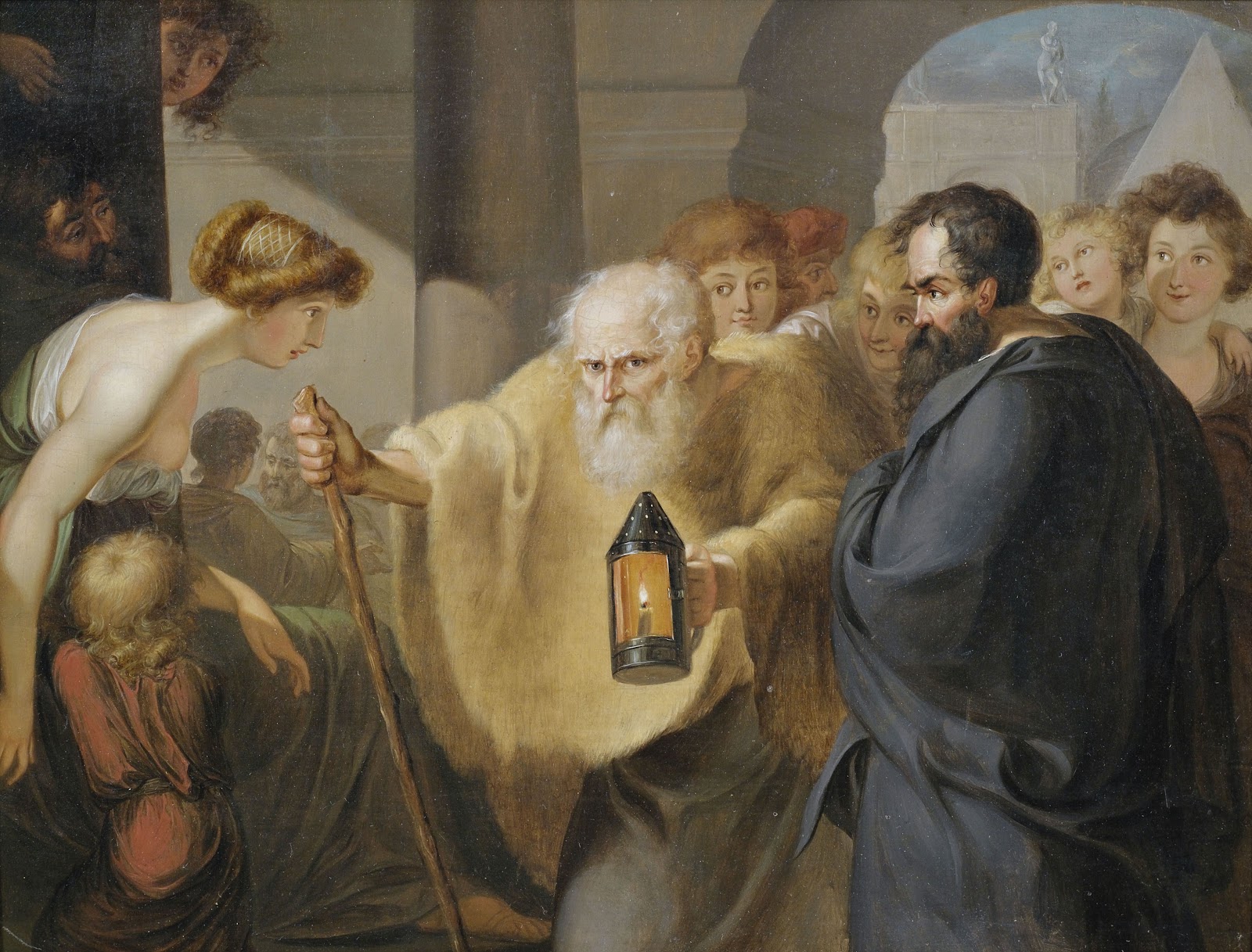
Xeniades sometimes complained that by being bossed around by his own slave things had become somewhat back-to-front, as if Diogenes had become the master and Xeniades his slave. Diogenes did such a good job that Xeniades said it was as if his house had been blessed with a good “guardian-spirit” and the philosopher stayed on there until his death. He reputedly turned down the opportunity to be ransomed by his friends.

Although he trained them to live simply and to endure hardship, the boys apparently loved their teacher.
DIOGENES CYNICISM HOW TO
Diogenes immediately set about telling them how to run their lives, what clothes to wear, etc., and overseeing the athletic training of Xeniades’ sons. Perhaps surprisingly, Diogenes was purchased by Xeniades who took him back to Corinth and put him in charge of his children and indeed his whole household. Diogenes then pointed out a wealthy Corinthian man in the audience, called Xeniades, who was dressed in rather ornate robes, saying “Sell me to that man, he could do with a master!” Somehow, Diogenes had managed to invert the whole situation by acting as if he were the one shopping for a “slave” to govern. When the auctioneer asked him what he was skilled at, Diogenes replied “Governing men”, much to everyone’s amusement. He said that if they are buying a pot or plate, or presumably a fish, they test first that it is good quality but when buying men they merely look them over rather than testing their character properly. After making fun of the auctioneer by laying down and pretending to be a fish, in typical Diogenes style, he then berated the audience, giving them a lecture on how to go about buying men. Such auctions typically began by asking where the slave was from to which Diogenes gave his standard reply, that he was from “everywhere”, being a citizen of the world, the original meaning of “cosmopolitan ”. Seeing one man was too upset to eat, Diogenes reassured him, urging him to have some food, and telling him to stop worrying and just take the moment as it comes. Just before the sale began he sat down to share some bread with the other prisoners, who were weeping at their misfortune. They took him to Crete where he was put up for auction as a slave. Listening to reason, the pirates began to feed all their prisoners better. Unintimidated as always, he rebuked the pirates saying that if one has pigs or sheep to sell, one fattens them up and keeps them healthy, yet they kept the finest of animals, human beings, on sparse food, until they were reduced to skeletons and worthless to sell.

His captors were initially quite brutal to Diogenes and the other captives, giving them barely enough food to survive but he bore his misfortune well, rising above their maltreatment with greatness of spirit. The story goes that Diogenes was captured by the notorious pirate captain Skirpalos and his crew, while sailing to the island of Aegina.
DIOGENES CYNICISM FREE
He meant that, although the two men perhaps never met in person, Diogenes was set free by the philosophical teachings of Antisthenes, one of Socrates’ circle of friends who founded his own Socratic sect, credited as the main forerunner or sometimes even the founder of Greek Cynicism.Įpictetus goes on to discuss the particularly well-known, although probably fictitious, story about Diogenes being captured by pirates, which apparently came from a book called The Sale of Diogenes by the 3 rd century BC Cynic philosopher and satirist Menippus. According to Epictetus, “Diogenes was set free by Antisthenes, and said that from that point forward he could never be enslaved by anyone again” ( Discourses, 4.1). Diogenes became a legendary character and many stories and anecdotes circulated about him in the ancient world, contributing to his status as a Stoic role-model. The two schools were sometimes even considered part of a single “Cynic-Stoic” tradition.


Diogenes of Sinope, the founder of Cynicism was greatly admired by the Stoics as a near-sage.


 0 kommentar(er)
0 kommentar(er)
